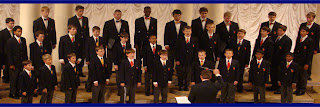I always tell them the same thing. It is based on my own early childhood music experiences, and my experiences as a young parent. I tell them to sing with their child. I tell them to teach their children lots of songs, and sing them together. They frequently give a dismayed disclaimer about their own singing voice. I tell them to improvise, and that the sound of their voice is the most important sound in their child's life, and that their child is not a music critic. And I tell them about my father's whistling.
I grew up 50 years ago, and my parents had been children of the Great Depression, raised in the share-cropping world of the rural south. In a path that can only be viewed as providential, they were both the first in their families to attend college, and they both studied education. I was raised with a mixture of rural family wisdom and the educational thinking of a world full of scientific conquest, baby boomer upward mobility, and the ubiquitous advice of Dr. Spock. For all the progress that was part of that time in America, it would be 30 years before the research that led to the term "Mozart Effect" would be widely disseminated. But there is no doubt that I remember the first music I heard, and that it had a life-long impact on me.
My father was known in our community as a professor and college administrator. He was also known for his community and church involvement. But to those who knew him well, he was especially known as a world-class whistler. If you woke up in our house, your first waking awareness was likely the sound of a hymn from my father's youth being whistled. If you drove by while we were in the yard, you would realize how far the sound of a well-executed whistle traveled. There were hymns, Christmas Carols and the occasional popular song. I particularly remember "Softly and Tenderly Jesus Is Calling."
When she was young my mother had an illness that resulted in pain in her vocal chords, so she was unable to sing very much. My father's whistling became the sound track of their parental nurturing. My childhood memories include all the usual things: laughter, vacations, meals, play, school. And they all come with accompaniment, pure and melodic, signifying the close presence and care of my parents.
My point in relating this version of childhood is not to point to my family as some sort of prototype of nurture. I'm sure your memories include similar characteristics. Rather, I want to express that the music that accompanies parental nurture is more important for its interweaving in the most basic of childhood experiences than for its guarantee of encouraging childhood ingenuity. In short, forget trying to give your child an intellectual head start until you have met your child's more immediate and important need, the need for your loving presence. There is plenty of time for children to grow intellectually, but precious little time for sitting on laps and riding in cars singing together, or falling asleep to the reassuring sound of a familiar whistle. Gentle singing says more than gentle speaking, and the effect of music on the brain pales in comparison to the affect of musical nurture on the whole child.

A couple of years ago my father had to have two heart valves replaced. He went through a very difficult recovery after it was discovered that the first attempt at replacing the valves had failed, and several more hospitalizations and another open-heart surgery were eventually required before he could begin getting back to normal. My brothers and I tried to stay with my mother and help as much as possible, and one morning after Dad had returned home we turned to one another with a relieved recognition. After months of listening for his labored breathing, we heard a more familiar sound coming from his bedroom, and we knew with decades of assurance that he would be alright. The sound we heard was a clear and melodic whistle, a familiar rendition of "Softly and Tenderly Jesus Is Calling."
No carefully chosen Mozart excerpt could have meant to us what that gospel hymn meant. It meant the same thing it had always meant, "Dad is close by, family is home, and everything is going to be fine."
 A roster of great musicians participated, including Rodney Wynkoop and his choral forces from Duke University, Greg Hobbs and singers from Highland Park Presbyterian Church in Dallas, and instrumentalists from the Los Angeles Philharmonic. The repertoire of the festival included masses and instrumental music by Franz Josef Haydn, who died 200 years ago. But it also included three international premieres, a variety of other music, and the Mozart "Requiem", which was performed at Haydn's memorial service in June of 1809.
A roster of great musicians participated, including Rodney Wynkoop and his choral forces from Duke University, Greg Hobbs and singers from Highland Park Presbyterian Church in Dallas, and instrumentalists from the Los Angeles Philharmonic. The repertoire of the festival included masses and instrumental music by Franz Josef Haydn, who died 200 years ago. But it also included three international premieres, a variety of other music, and the Mozart "Requiem", which was performed at Haydn's memorial service in June of 1809. On July 2, in Vienna's famed Musikverein, conductor David White led the Atlanta singers in a program that received ovation after ovation from the savvy Vienna audience, filling the silences between the songs and trying to give some small reward to the young but consummate musicians.
On July 2, in Vienna's famed Musikverein, conductor David White led the Atlanta singers in a program that received ovation after ovation from the savvy Vienna audience, filling the silences between the songs and trying to give some small reward to the young but consummate musicians.